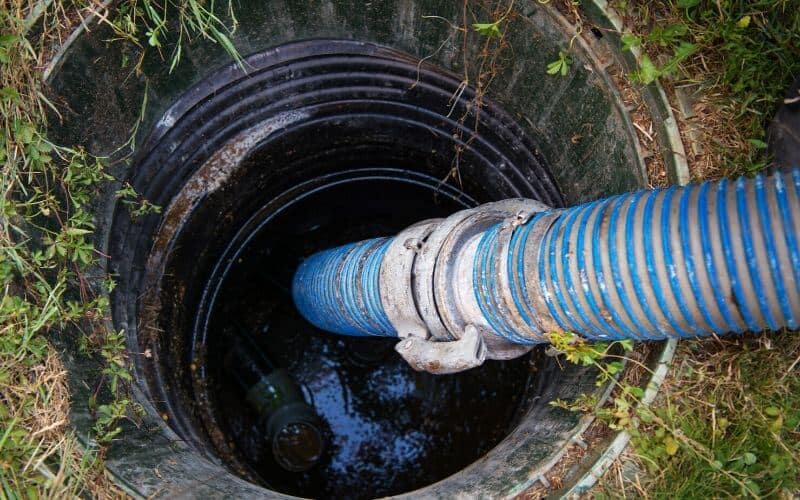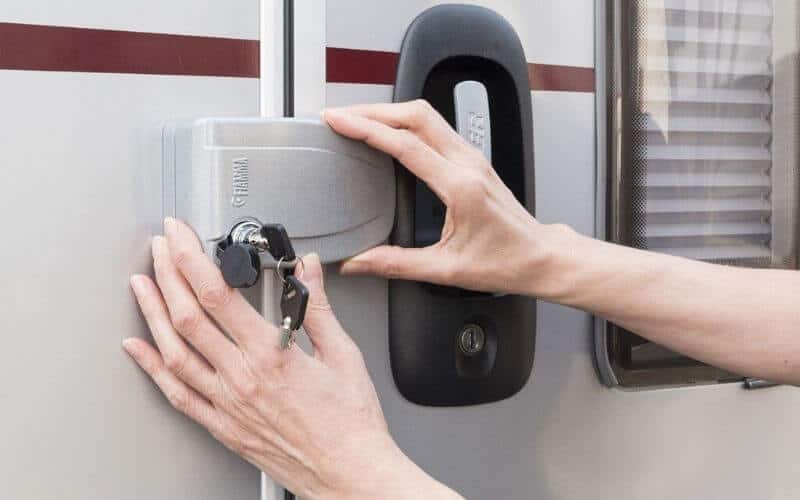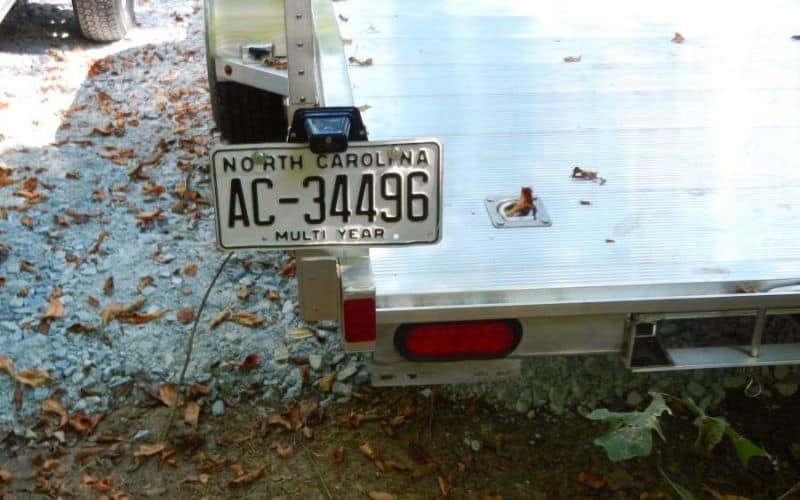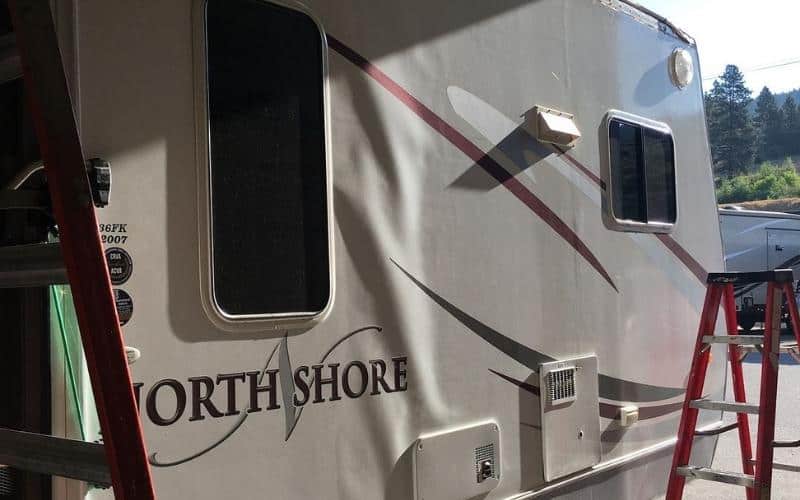Dumping RV waste into a septic tank is generally not advisable without taking certain precautions. A type of RV waste, commonly known as “black water,” in the black tank, consists of human waste and toilet paper from the RV’s bathroom. For hygienic and environmentally friendly travel, you must consider proper waste disposal.
In my RV adventures, I came across the same conflict, as it is tempting to empty your RV waste in a nearby septic tank. I did my research to understand the do’s and don’ts, as there are potential issues that can arise from dumping your RV waste carelessly. From possible contamination to system overload, it’s important to approach with caution.
Septic Tank’s Mechanism And Its Suitability For RV Waste
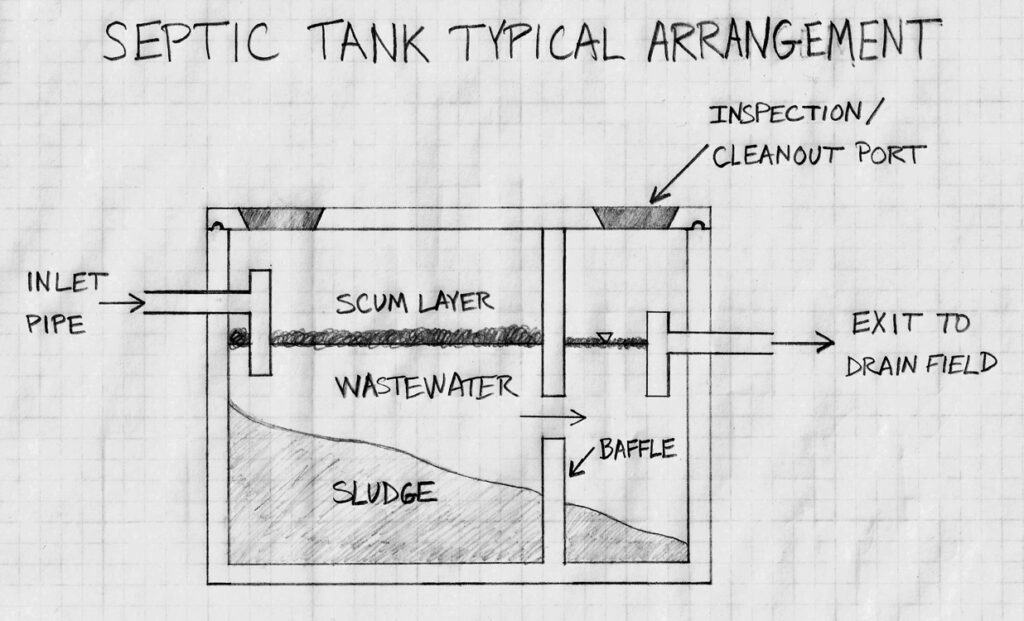
Septic tanks are an essential part of an on-site wastewater treatment system. They function by letting wastewater from residences, or in this case, RV go through a separate and biological treatment process. Below is an overview of how the work:
Step 1. Intel And Settling: Once you dump the RV waste in a septic tank with the help of a sewer hose, it goes through an initial phase of settling. Solid waste or sludge settles at the bottom, while lighter material like grease and oil floats on the top which forms a scum layer. This separation is critical for subsequent treatment.
Step 2. Anaerobic Digestion: Once the settling of the waste is done, the liquid in the middle undergoes anaerobic digestion. Anaerobic bacteria break down organic matter, converting it into gases like methane, carbon dioxide, and more stable substances. This helps in reducing the volume of solid waste and treats the liquid effluent.
Step 3. Outlet And Drainage: The clarified liquid which is relatively treated, now exits the septic tank through an outlet and enters the drain field. The drain field consists of perforated pipes buried in soil, allowing further filtration and absorption of treated effluent.
Septic tanks are effective for domestic waste, while RV waste presents them with challenges. Though RV grey tanks have mostly wastewater from the sink or shower, the RV black tank waste is mostly human waste from the toilet that has a concentrated nature and the occasional use of hard chemicals in the RV toilet can disturb the balance of microbial activity in the septic tank. This can compromise the tank’s efficiency and potentially harm the surroundings.
Considering the potential disruption, it is not advisable to dump RV waste directly in septic tanks. Proper disposal methods, such as spotting designated RV dump stations can help not only maintain your RV’s plumbing system but also the integrity of the wastewater treatment systems.
Environmental And Regulatory Considerations for RV Waste Disposal

According to The Seattle Times, the illegal dumping of RV waste has posed a public hazard by polluting the local waterways. Here, I will help you understand the key environmental and regulatory considerations, highlighting the important compliances and ecological factors for RV waste disposal:
| Considerations | Description |
| Environmental Impact | Wate from RVs may include additives and chemicals that are bad for the environment.Discharging water directly into the septic tank has the potential to upset the normal microbial activity balance in the water and soil system. |
| Local Regulations | The disposal of garbage is governed by rules in several areas.To confirm appropriate garbage treatment, certain localities would need to use approved disposal stations. |
| Groundwater Contamination | Poor dumping practices can contaminate groundwater, endangering ecosystems and human health.RV waste should not be added to septic tanks as they are not meant to handle concentrated waste. |
| Chemical Usage | The microbiological activities in the septic tank might not be compatible with chemicals that are frequently used in RV toilets for waste breakdown and odor control.These substances may be harmful to the environment and harm the septic system’s ability to process wastewater. |
| Public Health Concerns | Inappropriate disposal techniques have the potential to affect public health by aiding in the spread of illness and pollutants.Following the rules guarantees a clean environment for visitors and nearby communities. |
| Alternative Disposal Methods | Investigating different disposal options, including special RV dump sites, reduces the impact on the environment.Respecting the law guarantees ethical disposal of waste, encouraging an environmentally conscious and sustainable RV lifestyle. |
These considerations will not only help protect the environment but also confirm that you as an RV enthusiast will contribute positively to the communities you visit. Keep an eye out for the local regulations and follow the recommended disposal methods.
Safe Practices For Disposal Of RV Waste In Septic Tank
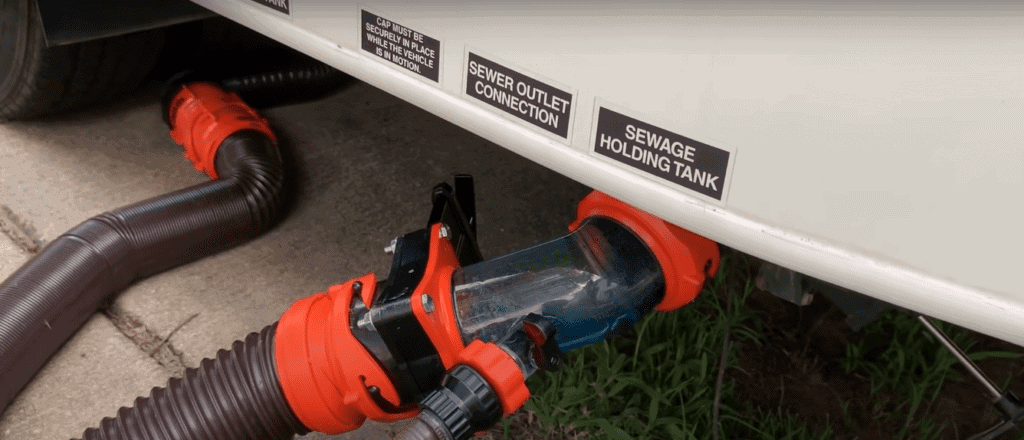
I am sure, so far you have got a clear idea of how important it is to take the required precautions while disposing of your RV waste in a septic tank. Here are some safe practices for the same:
- Check Local Regulations
Learn about the local laws and abide by them before attempting to dispose of RV waste in septic tanks. Certain locations could be subject to particular rules or regulations.
- Use RV-Safe Chemicals
Use waste treatment chemicals that are compatible with RVs if you decide to use a septic tank. These are designed to be septic-safe, minimizing the risk of disrupting microbial activity in the tank.
- Limit Chemical Usage
To prevent overpowering the septic tank’s natural microbial activities, use chemicals carefully. Using harsh chemicals excessively might damage the environment and the tank’s performance.
- Dump In Smaller Increments
Consider dumping the RV waste gradually in tiny amounts rather than all at once. As a result, the septic tank can manage and digest the waste more effectively.
- Choose The Right Septic Tank
Confirm that the septic tank you intend to utilize is appropriate for disposing of RV waste as per the regulations. Due to the concentrated and chemical nature of RV waste, certain tanks might not be able to manage the waste efficiently.
- Regular Septic Tank Maintenance
Establish a routine maintenance program for the septic tank that includes inspections and pumping. This will guarantee that the tank operates properly and helps prevent problems.
- Monitor Tank Levels
To avoid overloading the septic tank, monitor the levels in the tank. If the levels are not maintained, the tanks may overflow and cause backup problems or perhaps pose a risk to the environment.
- Consider Alternatives
For a more dependable and environmentally friendly waste management solution, you can look into alternative disposal techniques like authorized RV dump stations and other convenient options. I will elaborate thoe on the upcoming selection.
You can reduce the negative environmental effects and confirm that disposing of RV trash in the septic tank is done responsibly, according to these guidelines. Adhere to safety, following the law, protecting the environment, and the welfare of the community.
Alternatives To Using A Septic Tank For RV Waste Disposal

In this section, I will take you through the alternative options for RV waste disposal other than using a septic tank.
| Alternative Ways | Description |
| RV Dump Station | Seek out designated RV dump stations, often available at campgrounds or RV parks. These stations provide specialized facilities for proper RV waste disposal. |
| Municipal Wastewater Treatment | RVers may dispose of their garbage at wastewater treatment plants in some localities. To find out what facilities and rules are available, get in touch with the local authorities. |
| Portable Waste Tanks | Invest in a portable waste tank that can be quickly moved to a specified disposal area, I am currently using the Venustank 39 Gallon RV Portable Waste Tank. It made my life way easier than the times when I needed to carry my entire RV around to empty the tank. |
| Sanitary Dumping Stations | A few travel agencies and service stations provide clean disposal areas to dump your RV waste. Find out the nearby establishments that offer this service by connecting with them. |
| Commercial Disposal Services | You can also explore services specifically designated for RV waste disposal through local mediums. Some of them can offer convenient and environmentally friendly solutions. |
| Using Biodegradable Products | You can choose waste treatment chemicals and biodegradable toilet paper for your RV. This will reduce the environmental impact on the approved dumping station. |
| Wastewater Treatment Tablets | To break down waste before disposing of it, you can utilize tablets for wastewater treatment. When there is restricted access to dump stations, this can be a useful alternative. |
| Campground Services | There are several RV parks and campgrounds that offer complete waste disposal services. You can utilize these services to guarantee responsible disposal of waste when traveling. |
Each option has its advantages, so do your research with the community and choose the one that aligns best with your travel preferences and the surrounding infrastructure.

